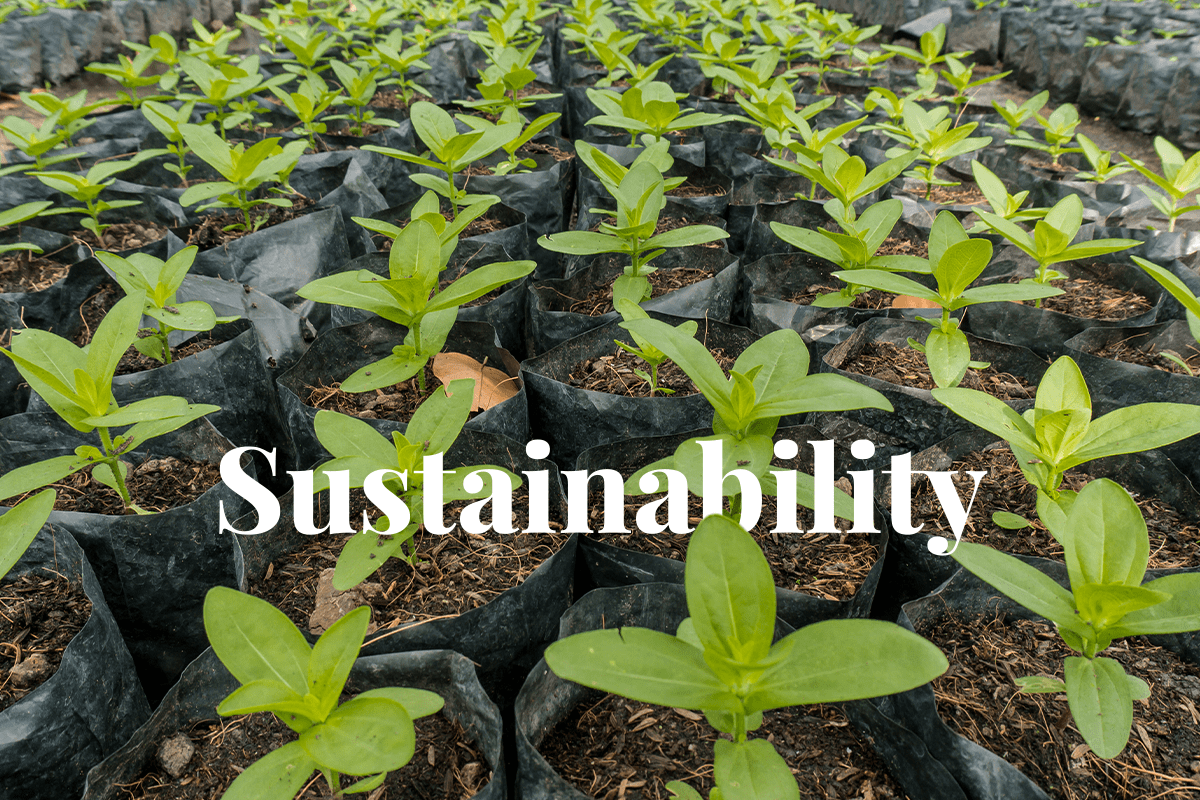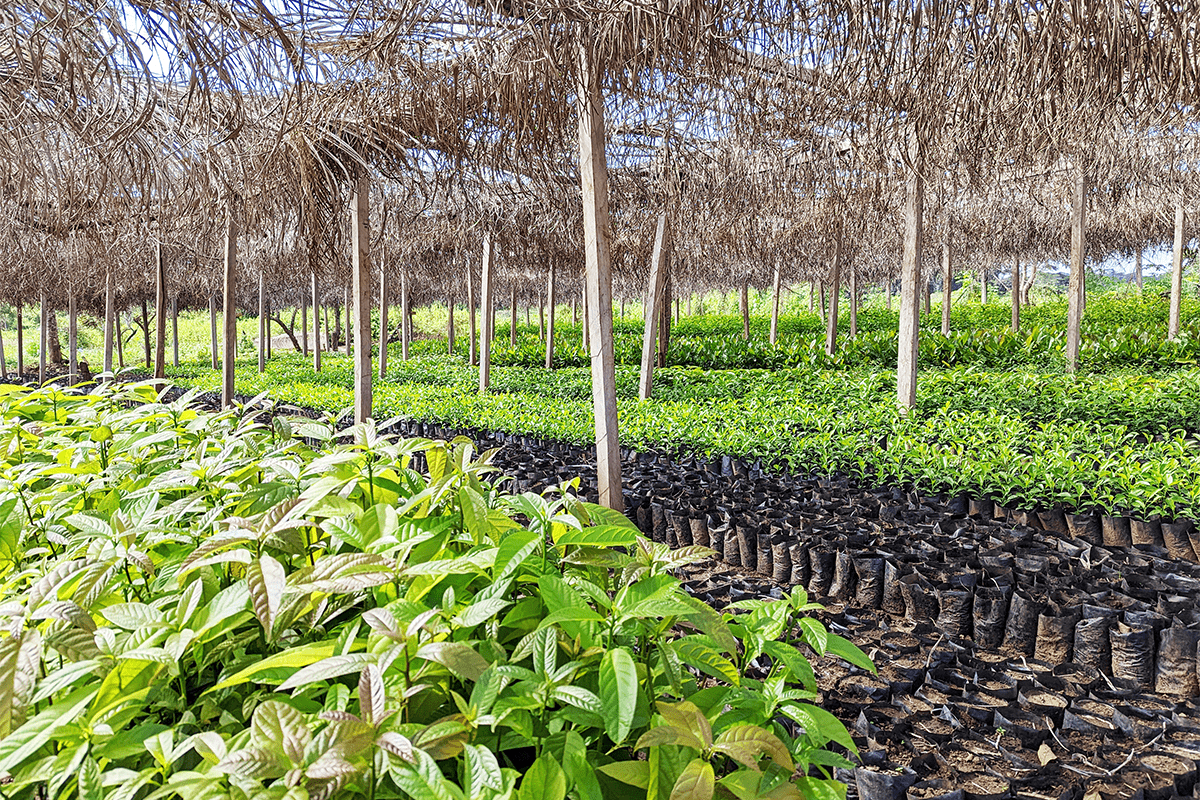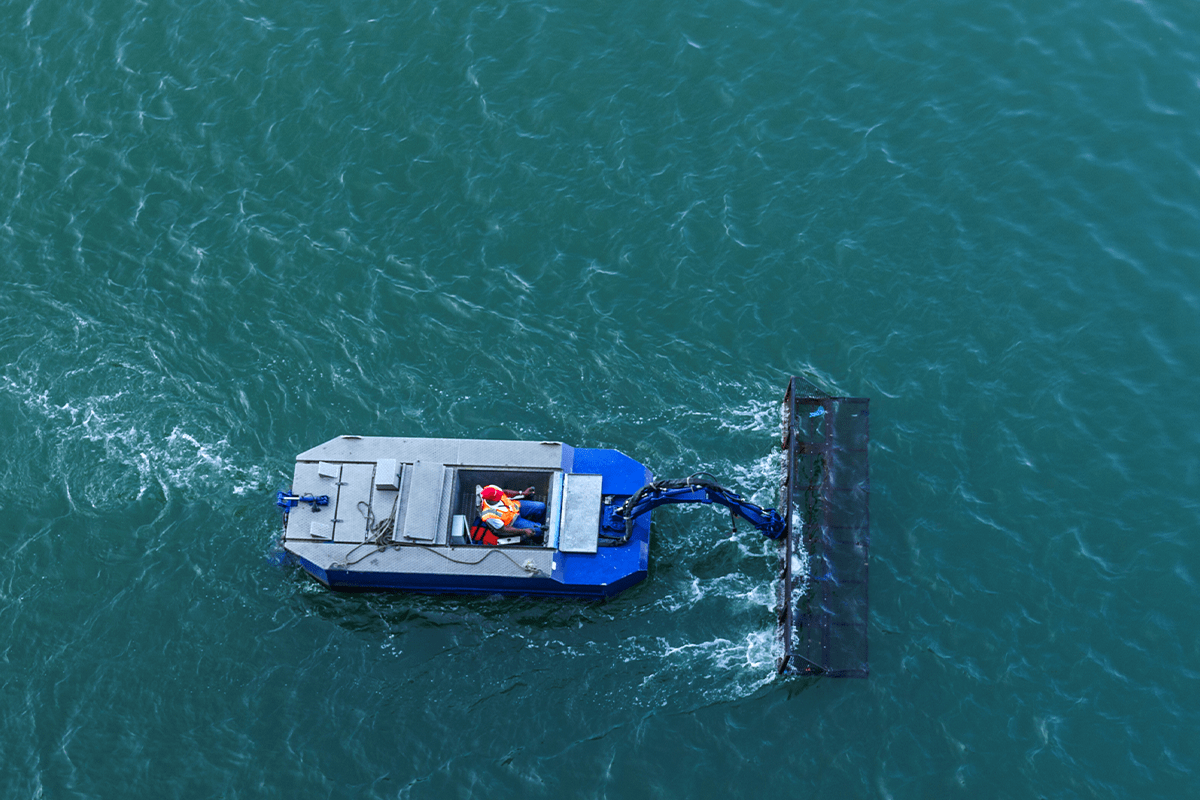Businesses have an incredible opportunity to positively impact the planet. While it may seem challenging, this opportunity offers the chance to create a sustainable future for generations to come. The business community has a crucial role to play in making a positive impact, reducing carbon emissions, and promoting sustainable business practices. In this article, we'll explore five practical and effective sustainable business practices that help achieve net-zero targets and pave the way for a more sustainable future.

1. Implement nature-based solutions
Nature-based solutions are an effective way for businesses to reduce their environmental impact while promoting social and economic sustainability. These solutions work with nature to protect natural ecosystems.
Nature-based solutions encompass a range of sustainable practices designed to address environmental challenges while providing economic benefits. These practices include afforestation, reforestation, habitat restoration, carbon farming, energy-efficient cookstoves, and sustainable agriculture. By implementing these solutions, businesses reduce their carbon footprint and promote biodiversity.
Reforestation, for example, involves planting trees to increase the amount of carbon that is absorbed from the atmosphere and stored in biomass. Wetland restoration involves restoring degraded wetlands to improve water quality, provide habitat for wildlife, and store carbon. Sustainable agricultural practices, such as crop rotation, cover cropping, and conservation tillage, can help reduce the occurrence of greenhouse gases from agriculture and improve soil health. By adopting these nature-based solutions, businesses can take concrete steps towards sustainability while also improving their bottom line.
Read more: How regenerative agriculture is transforming sustainable farming
In addition to reducing emissions, nature-based solutions also provide numerous co-benefits. For example, reforestation can help reduce erosion and improve soil health, while wetland restoration can help reduce flooding and provide critical habitat for wildlife.
Get started today: Plant trees with DGB
At DGB Group, we specialise in designing and implementing large-scale nature-based solutions that work for businesses and the environment. By working with us, businesses can reduce their environmental impact while promoting social and economic sustainability.
Read more: How natural climate solutions can help meet the Paris Agreement’s goals
 Tree Nursery - Sawa Afforestation Project, Cameroon, DGB.
Tree Nursery - Sawa Afforestation Project, Cameroon, DGB.
2. Reduce waste
Another way businesses can reduce their environmental impact is by reducing waste, which can ultimately contribute to producing eco-friendly products. This can take many forms, from reducing paper use to implementing recycling programmes or using recycled materials.
One area where businesses can make a significant impact is through packaging. Single-use plastics and excess packaging are significant contributors to waste and emissions. By using sustainable packaging materials and reducing excess packaging, businesses can reduce their waste and environmental impact.
Read more: The ultimate guide to plastic credits
DGB Group offers a unique solution to help businesses reduce their environmental impact and compensate for their plastic use: plastic offsetting. Our plastic offsetting programme allows businesses to offset the impact of plastic on nature and biodiversity. Each plastic credit purchased represents 1,000 kg of plastic cleaned up and recycled.
 Collecting waste from the sea.
Collecting waste from the sea.
By participating in our plastic-offsetting programme, businesses can help reduce the amount of plastic waste that ends up in our oceans, harming marine life and disrupting delicate ecosystems. With our programme, businesses support initiatives that work to remove plastic from the environment and prevent more from ending up in oceans and other habitats.
Start offsetting your plastic footprint today
Reducing food waste is also an essential step in reducing carbon dioxide emissions. According to the United Nations, around one-third of all food produced is wasted. This waste contributes to greenhouse gas emissions and unnecessarily strains the planet's resources. By implementing food waste–reduction programmes, businesses can reduce their environmental impact and save money.
3. Emphasise sustainability in the supply chain
Businesses can also make a significant impact by emphasising sustainability in their supply chains, ultimately creating more sustainable products. By working with suppliers that prioritise sustainable practices, businesses can reduce their environmental impact and promote sustainable practices throughout their industry.
One area where businesses can have a significant impact is in sourcing their raw materials. By using sustainable materials like bamboo, recycled plastic, and organic cotton, businesses can reduce their environmental impact and promote sustainable practices throughout their supply chain.
Read more: Uncovering the impact of Scope 3 emissions
Another way businesses can promote sustainability in their supply chains is by implementing ethical labour practices. By ensuring fair wages and safe working conditions for their employees and suppliers, businesses can promote social and environmental responsibility throughout their industry.
4. Encourage sustainable transportation
Transportation is a significant contributor to greenhouse gas emissions. Businesses can make a substantial impact by encouraging sustainable transportation practices among their employees and customers.
Businesses can promote sustainable transportation by offering incentives for employees who bike, walk, or take public transportation to work. By reducing the number of employees driving alone, businesses can reduce their carbon footprint and promote sustainable transportation practices.
Businesses can also encourage other sustainability initiatives regarding transportation among their customers. By providing bike parking, electric vehicle charging stations, and promoting public transportation options, businesses can make it easier for customers to make sustainable choices.
5. Commit to continuous improvement
Finally, businesses can make a significant impact by committing to continuous improvement. Sustainability is an ongoing process, and business owners will benefit from adapting and improving their practices over time.
One way businesses can commit to continuous improvement is by setting sustainability goals and tracking their progress. By setting specific, measurable, and achievable goals, businesses can hold themselves accountable and make meaningful progress towards a more sustainable future. As part of a greater effort to sustainably manage one's energy consumption, businesses may also consider opting for renewable energy sources, like solar panels.
Explore how leading companies are achieving net zero
Another way businesses can commit to continuous improvement is by investing in sustainable technology and practices. From energy-efficient lighting to sustainable manufacturing processes, there are numerous ways businesses can reduce their environmental impact and promote sustainability.
Achieve net zero with DGB Group
DGB recognises that achieving net-zero emissions for businesses is crucial in mitigating their climate impact and creating a sustainable future. As a company committed to sustainability, DGB firmly believes that nature-based solutions play a critical role in achieving this goal.
By implementing large-scale solutions that work with nature rather than against it, businesses can significantly reduce their negative environmental impact. Nature-based solutions like reforestation, wetland restoration, and sustainable agricultural practices can help businesses sequester carbon, reduce emissions, and promote biodiversity. In addition, adopting these solutions can also create social and economic sustainability, providing benefits like job creation and improved community wellbeing.
Measure your business’ environmental impact
DGB works closely with businesses to design and implement nature-based solutions tailored to their specific needs and goals. By committing to reach net-zero emissions, companies can demonstrate their commitment to sustainability and take concrete actions to reduce their environmental impact. DGB believes that by working together with businesses, we can make a significant impact and create a better future for generations to come.
In conclusion, achieving net-zero emissions is a critical step towards ensuring long-term environmental sustainability and creating a better tomorrow for future generations. By adopting nature-based solutions and committing to sustainability, businesses can reduce their environmental impact while also promoting social and economic sustainability. DGB is committed to working with businesses to design and implement customised solutions that help them achieve their sustainability goals and create a better tomorrow.
Contact our experts and start making a positive impact today



